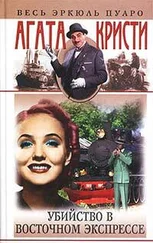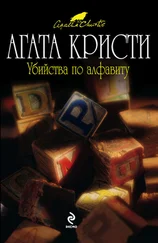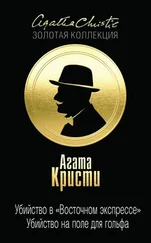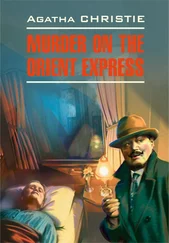solution [sǝˈlu:ʃ(ǝ)n], wreck [rek], coincidence [kǝʋˈɪnsɪd(ǝ)ns]
"You think that this man Ascher came into the shop drunk, started abusing his wife and finally struck her down?"
"It seems the most likely solution. But I must confess, sir, I'd like to have another look at that very odd letter you received. I was wondering if it was just possible that it came from this man Ascher."
Poirot handed over the letter and the inspector read it with a frown.
"It doesn't read like Ascher," he said at last. "I doubt if Ascher would use the term 'our' British police — not unless he was trying to be extra cunning — and I doubt if he's got the wits for that. Then the man's a wreck — all to pieces. His hand's too shaky to print letters clearly like this. It's good quality notepaper and ink, too. It's odd that the letter should mention the 21 stof the month. Of course it might be a coincidence.''
"That is possible, yes (это возможно, да) ."
"But I don't like this kind of coincidence, Mr. Poirot (но я не люблю этот тип совпадений, мистер Пуаро) . It's a bit too pat (оно слишком в точку: «оно немного слишком в точку»; pat — подходящий; уместный; удачный; годный, соответствующий; стандартный; банальный, неоригинальный) ."
He was silent for a minute or two (он молчал: «был молчалив» с минуту или две) — a frown creasing his forehead (морщинка пролегла по его лбу: «складочка сморщила его лоб»; to crease — мять, сминать) .
"A.B.C. (Эй-би-си) . Who the devil could A.B.C. be (кто, черт /побери/, может быть /этот/ Эй-би-си) ? We'll see (посмотрим: «мы увидим») if Mary Drower (сможет ли Мэри Дроуер) (that's the niece (это племянница) ) can give us any help (оказать нам какую-нибудь помощь) . It's an odd business (это странное дело) . But for this letter (но, что касается этого письма) I'd have put my money on Franz Ascher for a certainty (я бы наверняка поставил мои деньги на Франца Эшера; certain — точный, определенный; уверенный) ."
crease [kri:s], forehead [ˈfɔrɪd] [ˈfɔ:hed], certainty [ˈsǝ:t(ǝ)ntɪ]
"That is possible, yes."
"But I don't like this kind of coincidence, Mr. Poirot. It's a bit too pat."
He was silent for a minute or two — a frown creasing his forehead.
"A.B.C.. Who the devil could A.B.C. be? We'll see if Mary Drower (that's the niece) can give us any help. It's an odd business. But for this letter I'd have put my money on Franz Ascher for a certainty."
"Do you know anything of Mrs. Ascher's past (вы знаете что-нибудь о прошлом миссис Эшер) ?"
"She's a Hampshire woman (она из Гемпшира: «она женщина /из/ Гемпшира») . Went into service as a girl up in London (в Лондоне пошла работать прислугой, когда была девушкой) — that's where she met Ascher and married him (это там она встретила Эшера и вышла за него замуж; to meet — встречать; знакомиться) . Things must have been difficult for them during the war (им, вероятно, сложно пришлось во время войны: «вещи, должно быть, были сложны для них во время войны») . She actually left him for good in 1922 (фактически, она оставила его навсегда в тысяча девятьсот двадцать втором /году/) . They were in London then (тогда они были в Лондоне) . She came back here to get away from him (она приехала сюда назад, чтобы убежать от него; to get away — убираться; уходить; удирать) , but he got wind of where she was (но он узнал, где она была; to get wind — получить представление) and followed her down here (и последовал за ней сюда) , pestering her for money (докучая ей из-за денег) — " A constable came in (вошел констебль) ."Yes, Briggs (да, Бриггс) , what is it (в чем дело) ?"
Hampshire [ˈhæmpʃǝ], during [ˈdjuǝrɪŋ], pester [ˈpestǝ]
"Do you know anything of Mrs. Ascher's past?"
"She's a Hampshire woman. Went into service as a girl up in London — that's where she met Ascher and married him. Things must have been difficult for them during the war. She actually left him for good in 1922. They were in London then. She came back here to get away from him, but he got wind of where she was and followed her down here, pestering her for money — " A constable came in. "Yes, Briggs, what is it?"
"It's the man Ascher, sir (этот человек, Эшер, сэр) . We've brought him in (мы привели его; to bring — приносить; приводить) ."
"Right (правильно/хорошо) . Bring him in here (приведите его сюда) . Where was he (где он был) ?"
"Hiding in a truck on the railway siding (прятался в вагонетке на железнодорожной запасной ветке; truck — открытая товарная платформа; тележка, вагонетка) ."
"He was, was he (вот как: «он был», не так ли) ? Bring him along (приведите его) ."
Franz Ascher was indeed a miserable (Франц Эшер на самом деле был жалким) and unprepossessing specimen (и не располагающим к себе типом; to prepossess — овладевать; производить благоприятное впечатление; specimen — образец; субъект, тип) .
He was blubbering (он громко рыдал; to blubber — громко плакать, рыдать; выть) and cringing (лебезил; to cringe — сгибаться в подобострастной позе) and blustering alternately (и грозил попеременно; to bluster — бушевать; реветь /о буре/, завывать /о ветре/; шуметь, хвастаться, грозиться) . His bleary eyes moved shiftily from one face to another (его мутные глаза передвигались по очереди с одного лица на другое) .
miserable [ˈmɪzǝrǝbl], cringe [krɪnʤ], bleary [ˈblɪǝrɪ]
"It's the man Ascher, sir. We've brought him in."
"Right. Bring him in here. Where was he?"
"Hiding in a truck on the railway siding."
"He was, was he? Bring him along."
Franz Ascher was indeed a miserable and unprepossessing specimen.
He was blubbering and cringing and blustering alternately. His bleary eyes moved shiftily from one face to another.
"What do you want with me (что вы от меня хотите) ? I have not done nothing (я ничего не сделал) . It is a shame and a scandal to bring me here (это позор и скандал — приводить меня сюда) ! You are swine (вы свиньи) , how dare you (как вы смеете) ?" His manner changed suddenly (его поведение неожиданно изменилось) . "No, no, I do not mean that (я не имею в виду, что) — you would not hurt a poor old man (вы не причините вреда бедному старику) — not be hard on him (не будете строги с ним; to be hard on — быть строгим, суровым; круто обходиться) . Everyone is hard on poor old Franz (все круто обходятся с бедным старым Францем) . Poor old Franz (бедный старый Франц) ."
Читать дальше





![Агата Кристи - Убийства по алфавиту [litres]](/books/397046/agata-kristi-ubijstva-po-alfavitu-litres-thumb.webp)

